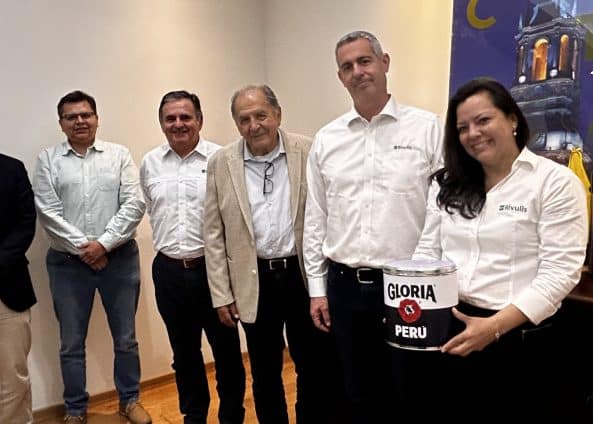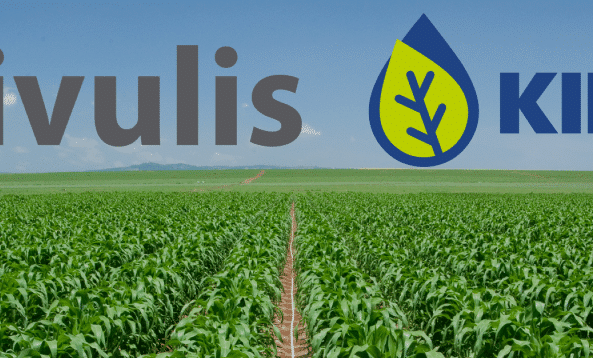
Embracing the Journey Toward Sustainability
By Adi Mannor Kiraly
Today, I am pleased to share our second ESG report, which outlines the progress we’ve made in incorporating sustainability into every step of our mission to redefine how the world grows food amidst the uncertainties of a changing climate.
This report is especially significant to me as it marks my first as the Chief Sustainability and Communications Officer of Rivulis. It also represents a milestone in our journey to empower growers everywhere with the tools they need to become sustainable and climate-resilient farmers.
The report highlights the high standards we uphold in our business operations and showcases the evolution of our company. Since our inaugural report in 2022, we’ve merged with the International Irrigation Business of Jain Irrigation, expanding our accountability efforts to include these subsidiaries. We’ve doubled in size, welcomed nearly 750 new colleagues, expanded to more countries, and broadened our solutions offering with best-in-class micro irrigation products, all while staying true to our guiding principles.
Our Vision in Action
Our vision, “Embrace the Planet, Feed the World, and Change the Life of Every Farmer,” is the philosophy that drives our actions and decisions. Through this philosophy, we are committed to making a difference in our operational footprint, the communities we serve, and the employees we work with. Here’s what that looks like in practice.
Footsteps without Footprints
Knowing our vision, it’s no surprise that Rivulis is also committed to integrating sustainability principles into our manufacturing processes, facilities, products, and services. We constantly aim to reduce our carbon footprint while advancing our business objectives without causing significant harm to the planet.
Our efforts to reduce energy consumption and plastic waste include programs for collecting and recycling used drip lines and drip tapes from our customers’ fields, and when challenges arise, we create our own solutions. This year, we will launch a state-of-the-art recycling facility in California, which will have the capacity to recover our products and integrate at least 30% post-consumer and post-industrial waste into our raw materials by 2025.
In line with our commitment to sustainable innovation, we are proud to have recently launched Rivulis T-Tape White, the first drip tape made with at least 50% recycled materials. This product offers the same trusted performance in water application, clogging resistance, strength, and customizable configurations, in a more environmentally friendly option that farmers want.
Under our Renewable Energy initiative, we installed new solar panel systems in Greece and Spain in 2019, reducing our annual carbon emissions by a combined 807 tons of CO2 by producing 743,824 kWh of solar energy.
Last but not least, in our latest initiative—the Rivulis Climate Program—we are developing new business models for farmers to adopt more sustainable practices while accessing the benefits of the voluntary carbon credit economy. The program has already supported ten farmers on 1,250 hectares, with a goal to reach 25 farmers and 3,500 hectares in 2024.
Empowering Employees, Communities, and Growers
To make our vision come to life it’s also important that we create an environment internally that keeps all our employees connected and engaged. This includes integrating all the new colleagues from Jain and fostering a strong company culture that respects the heritage of our diverse workforce, which includes 37 nationalities. This is tremendously important and allows us to be a positive force in all the communities where we operate, engaging with local governments, schools, community groups, and NGOs on social issues, food security, and sustainability.
A key part of our inclusivity and empowerment efforts is the Rivulis Impact Finance initiative, which bridges financial gaps to make micro irrigation accessible to all farmers, regardless of size. This initiative ensures everyone has a stake in the global shift towards eco-friendly practices.
Looking Back and Looking Ahead
While we have made significant strides and adhere to the metrics of the Sustainability Accounting Standards Board (SASB), the Global Reporting Initiative (GRI), and the United Nations’ Sustainable Development Goals, we are still just at the beginning.
The case studies in this report inspire me for the future. From supporting over 4,500 women farmers in India in enabling year-round crop cultivation and boosting incomes through the introduction of drip irrigation systems to integrating subsurface drip irrigation into a mill in Da Mata, Brazil, which doubled production while halving energy usage, to establishing a demo farm in the UAE showcasing techniques to protect food security in challenging conditions, these stories affirm that our work truly matters.
Our journey is one of continuous improvement and relentless dedication. I invite you to read these stories and join us in the next ambitious steps on this journey.
Read the full report here>>





